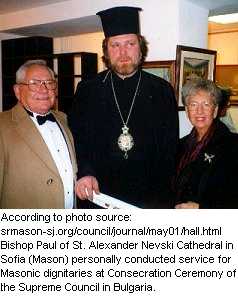Praying with Hypoglycemia
First, I don’t make excuses. I’m Orthodox. I believe that my own sin is responsible for the death at work in my body, and therefore for any illness I have and its results. I am responsible. It is my fault. That is the Orthodox mind. I brought death into this world. I am Adam. I did this. All the suffering, all the pain – it’s me – I caused it. I crucified Christ.
Second, it’s a significant challenge to keep it from creating more sin and more death.
The effects are most pronounced before and especially after liturgy. I’m referring to hypoglycemia – low blood sugar. My hypoglycemia is fairly pronounced. The technical part is that I have trouble metabolizing sugar in food. I need protein to help me do so. Lacking that, I need complex carbs (they don’t break down into sugars as quickly as junk carbs) to sustain me until I can get protein. Lacking those, I burn and burn on foods and beverages containing simple sugars. The effects are that, if I don’t have sufficient protein, often enough, I become either lethargic, isolated, and depressed, or I become cranky, perhaps even explosive, impatient and offensive.
Often enough, I get my choice. From midnight Sunday morning until after liturgy is a fast. And this means that after liturgy, before I’ve had protein, or if I’m only having carbs, especially simple ones laden with sugar, I get to choose between avoiding contact with people, keeping to myself, trying to sit alone, being fairly unresponsive, seemingly antisocial, or else to engage, but with that engagement causing me enough pain that I can tend to lash out in a hostile or antisocial way. It’s a lovely choice. I’m not complaining. It’s my fault. But I do recognize the challenge.
Platitudes don’t work. It’s a chemical thing. It’s bonded to my person. It’s death. The easy answers might as well ask me not to die, and not have sinned. The easy answers are themselves signs of death, for their lack of truthfully taking stock of what death is and does and where it comes from. Yes, I know about economia. I have an economia, for dairy during fasts. Not for violating abstinence. And this is sufficient, in my opinion. Economia is not mean to free us from challenges, but to remove barriers to our salvation. Sometimes the lack of challenge is the barrier. So I’m not seeking further economia of that kind.
Living with this means being misunderstood almost all the time. And trying to explain it to someone is just as much a cross, because then the moment you say something unconventional, challenge authority, disagree with what people consider obvious, engage in dissidence, or display unusual behavior, people think (and say, often enough) “ah, well know he has problems.” People refer to the illness to explain anything they can’t otherwise explain. And now you might as well not have engaged them – you have no credibility anyway. Further engagement remains superficial, disappointing, if not demoralizing. It’s usually not worth it, to engage or to explain.
The point is that once you discuss being ill, you no longer even have the credibility to discuss being ill. So you accept alienation, as the normal course of your life. You breathe in the deep Christian tradition of alienation, the great precedents, and you buckle down and endure. You live a life enduring, letting the waves of human reaction wash over you, and strip away flesh and soul, but you go on living anyway. That’s the way you live.
You sit alone a lot, and try to keep from doing harm. You engage on occasion, but cautiously, and sometimes when you can’t disengage and need to, you invent excuses, unless someone’s standing in your face going on and on, oblivious, and then you usually just burst at some point and let the chips fall where they may.
You wait for the moment to try to get some protein in you – some soymilk, some hummus, something to calm you, soothe you, rescue you from the inferno in your soul, and from the acid bath of human contact while you endure. You hold out, hold on, pray if you have the heart, and you hope you don’t ruin yet another potential relationship. But you’re ok if you do; there was barely a chance anyway.
And most of all, you do what it takes to be Orthodox. You keep the Faith. You hold on. The end is coming. Life is a speeding car. You wait to be redeemed, and you accept suffering. You pray that God will let you live, even on the coattails of all those going before. You don’t seek advice – no one understands. You don’t seek help – there is no fixing it. You only get from one day to the next. And for God’s sake, you don’t listen to lectures from people who tell you how it’s supposed to be, how it’s all supposed to work, and what it all means. We live in a culture of little moralisms, of platitudes, of religious fortune cookie catchphrases. You withdraw – you don’t let people explain to you your place in the world. “Who sinned, this man or his parents?” Listening only makes it worse.
And if you tell anyone any of this, you do it with no intention of seeking or getting their approval, with no interest in their pity or their assessment of you, and with no hand held out for answers or for some ‘message’. If you say anything, you say it into the void. But you say it, because maybe they’ll understand more for the next person, for the one near them that they don’t understand, and they’ll make the only viable choice other than simply remaining aloof – they’ll choose to live with him, live with who he is, how he is, what he is, and how he lives.
That’s all any of us can do, really. I’m sick and I live with you. I don’t apologize, and I don’t ask you to apologize for not getting it. And likewise, if you want to help, live with me, live with the next guy, live with each other. Live with those you don’t understand, with the stranger, the outcast, the isolated, the unusual, the different, the deviant,the dissident. That’s the meaning of peace. That’s the Christian way to live on the earth. And for some of us, it’s living with the normal people, differently, but as truly as we can.
I’ve not much more to say on this. It’s a bitter choice – not whether to offend, but how to offend, by withdrawing or through engaging. It’s a ludicrous illustration of the absurdity of death and of sin. I have thanked God for my illness. I’ve thank him that he’s allowed me to see the meaning of death in this way. It has saved me. All things truly are for our salvation. God be praised. God have mercy. God heal me, through sickness if need be. Save me by any means. Only do not let me fall away into nothing, into oblivion, save my dust, and reconstitute me a man, and I will serve Thee.
 Welcome is Prayer.
Welcome is Prayer. I have found that it is possible for a person to be Orthodox, in the sense that they are baptized, chrismated, do penance, and receive communion, and yet not be Christian. Likewise, it seems possible for an organization to be an Orthodox Church, but not be a Christian community. This will seem controversial, but I think it’s so.
I have found that it is possible for a person to be Orthodox, in the sense that they are baptized, chrismated, do penance, and receive communion, and yet not be Christian. Likewise, it seems possible for an organization to be an Orthodox Church, but not be a Christian community. This will seem controversial, but I think it’s so. In the field of sociology, much really excellent work has been done on analyzing the polity of cult behavior. The analysis has proceeded quite helpfully across confessional boundaries, to think in terms of cult social behavior, cult attitudes (in terms of social psychology), cult social structures, etc. There have been many studies and many lists of earmarks of cults put out, and some points are controversial, while others have nearly universal agreement. “Nearly”, because of course some groups feel justifiably threatened by the analysis. The analysis can apply to an entire group, to a group within a group, to a mere congregation of something vast and universal, or to an entire confession. The sociological elements are key, not anything like “official” status, sanction, or membership. Your tax-exempt status has no relevance. Likewise it does not assume that all cult or cult-like groups will have all of the elements, so analysis is not intended to be comprehensive, but rather to look for a constellation of attitudes and behaviors that elicit a trend. Here are set of common elements culled from some of this analysis: …
In the field of sociology, much really excellent work has been done on analyzing the polity of cult behavior. The analysis has proceeded quite helpfully across confessional boundaries, to think in terms of cult social behavior, cult attitudes (in terms of social psychology), cult social structures, etc. There have been many studies and many lists of earmarks of cults put out, and some points are controversial, while others have nearly universal agreement. “Nearly”, because of course some groups feel justifiably threatened by the analysis. The analysis can apply to an entire group, to a group within a group, to a mere congregation of something vast and universal, or to an entire confession. The sociological elements are key, not anything like “official” status, sanction, or membership. Your tax-exempt status has no relevance. Likewise it does not assume that all cult or cult-like groups will have all of the elements, so analysis is not intended to be comprehensive, but rather to look for a constellation of attitudes and behaviors that elicit a trend. Here are set of common elements culled from some of this analysis: … It occasionally bears repeating, that Orthodox are forbidden to be freemasons. Period. No, ifs, ands, buts. Not if we understand it in a certain way. Not if it is this or isn’t that. It’s verboten. Among the
It occasionally bears repeating, that Orthodox are forbidden to be freemasons. Period. No, ifs, ands, buts. Not if we understand it in a certain way. Not if it is this or isn’t that. It’s verboten. Among the